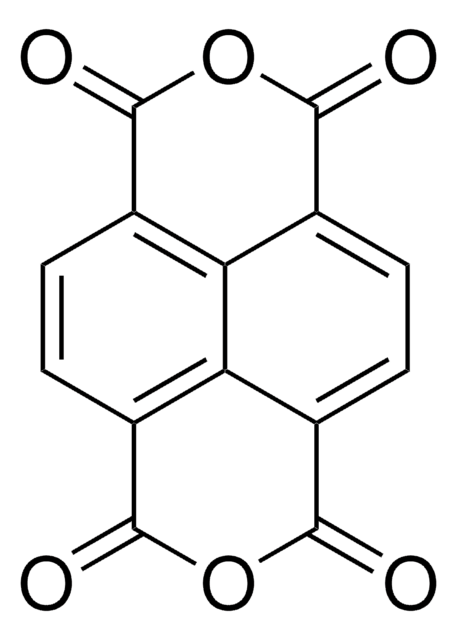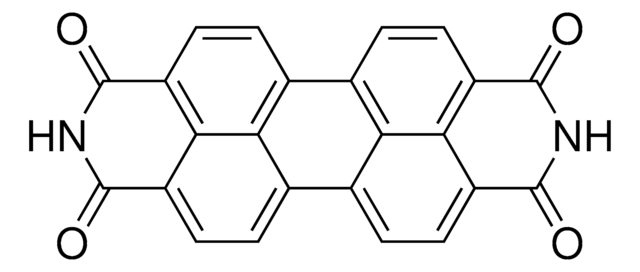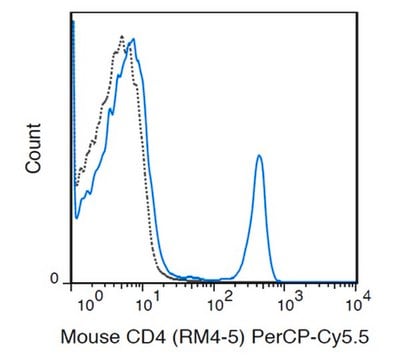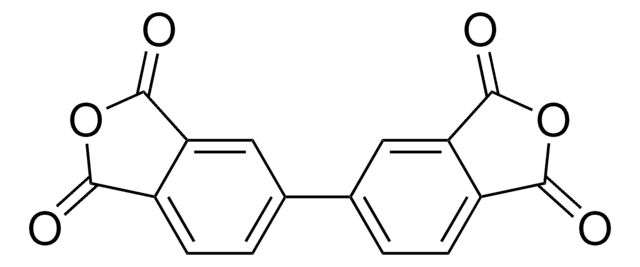P11255
PTCDA
97%
Synonym(s):
Perylene-3,4,9,10-tetracarboxylic dianhydride, Pigment Red 224
About This Item
Recommended Products
description
Band gap: 2.1 eV
Quality Level
Assay
97%
form
powder
mp
>300 °C
Orbital energy
HOMO -6.8 eV
LUMO -4.7 eV
OPV Device Performance
ITO/CuPc/PTCDA/In
semiconductor properties
N-type (mobility=10−4 cm2/V·s)
InChI
1S/C24H8O6/c25-21-13-5-1-9-10-2-6-15-20-16(24(28)30-23(15)27)8-4-12(18(10)20)11-3-7-14(22(26)29-21)19(13)17(9)11/h1-8H
InChI key
CLYVDMAATCIVBF-UHFFFAOYSA-N
Looking for similar products? Visit Product Comparison Guide
General description
Application
Storage Class Code
11 - Combustible Solids
WGK
WGK 1
Personal Protective Equipment
Choose from one of the most recent versions:
Already Own This Product?
Find documentation for the products that you have recently purchased in the Document Library.
Articles
Fabrication procedure of organic field effect transistor device using a soluble pentacene precursor.
Professor Chen (Nankai University, China) and his team explain the strategies behind their recent record-breaking organic solar cells, reaching a power conversion efficiency of 17.3%.
Our team of scientists has experience in all areas of research including Life Science, Material Science, Chemical Synthesis, Chromatography, Analytical and many others.
Contact Technical Service







